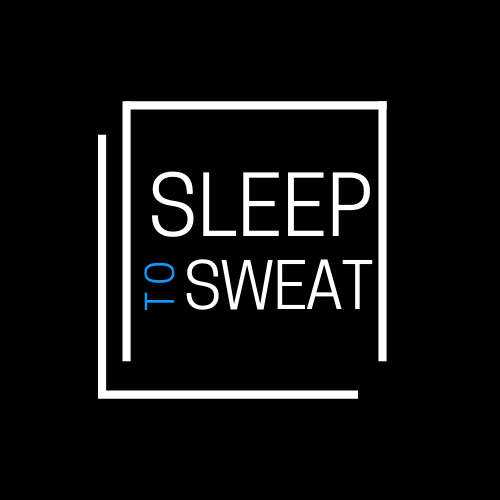OUR LATEST POSTS

Why Monitoring Your Fitness Progress is Key to Long-Term Success
Getting fit is more than just about pushing your limits in the gym. It’s about understanding how your body responds to different activities, how well it recovers, and ensuring you're meeting your physical goals in a sustainable way. While motivation and consistency are vital, tracking your health and fitness progress can have an enormous impact on achieving success over the long haul. Monitoring your body’s performance can help you stay on track, avoid injuries, and continue improving at a steady pace.
The first step in tracking your fitness progress is understanding the right health metrics to follow. From your heart rate to sleep quality, keeping tabs on these factors can show you exactly how well your body is adapting to exercise, and where you might need to make adjustments. With the right tools and a clear understanding of what’s important to track, it becomes easier to make informed decisions that help you reach your goals.
Heart Rate and Cardio Health
Your heart rate is a vital sign of your cardiovascular health and a strong indicator of how your body is handling physical exertion. Monitoring your heart rate during workouts can help ensure you're staying within an optimal zone for fat burning or improving aerobic fitness. Many fitness trackers offer features that allow you to keep track of your heart rate in real-time, which can be helpful when doing high-intensity training or running.
Understanding your resting heart rate is just as important. A lower resting heart rate can be a sign of a more efficient heart and better cardiovascular fitness, while an elevated resting heart rate may indicate stress, overtraining, or even illness. Over time, observing changes in your resting heart rate can show you how well your body is recovering from training and provide insight into whether your current fitness plan is too taxing or just right.
Sleep Quality
Sleep plays a key role in fitness. It’s during sleep that your body repairs itself, builds muscle, and recharges for the next day’s workout. Monitoring your sleep patterns gives you insight into whether you're recovering properly between sessions. You may not realize it, but poor sleep can seriously hinder your performance and even lead to injury.
Fitness trackers and apps can help you track sleep stages, the duration of your sleep, and even the quality of rest you’re getting. If you notice a drop in sleep quality after a tough workout, it might be an indication that you're overdoing it, and your body needs more time to recover. Conversely, improving your sleep routine can result in better performance during workouts, and more consistent progress.
Hydration Levels
Hydration is another key factor in achieving long-term fitness success. Dehydration can lead to fatigue, poor performance, and increased risk of injury. While there are many ways to track hydration, the simplest is by keeping an eye on how much water you consume throughout the day, especially around your workouts.
A great tool to help with hydration is an insulated shaker bottle like the Brio Bottle. Whether you're drinking water, a pre-workout shake, or post-exercise recovery drink, a reliable shaker can keep your beverages cool and convenient for refueling. The Brio Bottle is not only designed for keeping drinks at the right temperature but also encourages you to stay on top of your hydration needs throughout the day. You can check it out here and see how it fits into your fitness routine.
Tracking Nutrition and Calories
While exercise is important, what you eat also plays a significant role in reaching your fitness goals. Keeping track of your daily caloric intake and macronutrients (carbs, protein, and fats) can help you ensure you’re fueling your body correctly to support your workouts and muscle recovery. There are a number of apps available that allow you to log meals, scan barcodes, and even track macronutrient breakdowns to ensure you’re eating the right foods for your fitness needs.
By monitoring your nutrition, you can make adjustments as necessary based on how you’re feeling and performing. If you're not recovering well after workouts, it could be a sign that you need to tweak your protein intake or increase your carbohydrate consumption. Tracking your nutrition is all about finding the balance that works for you, which can make a huge difference in the effectiveness of your fitness routine.
Performance Metrics
Fitness progress isn’t just about looking at how much weight you can lift or how fast you can run. It’s about setting specific performance metrics and working toward improving them over time. This could be achieving a new personal best in the gym, running a longer distance, or even increasing your flexibility.
Having a fitness tracker or app that lets you log these activities allows you to see where you're excelling and where you need to focus more effort. If you're lifting weights, tracking the number of sets, reps, and the amount of weight used can show you how your strength is progressing. Similarly, if you’re into running or cycling, keeping track of your speed, distance, and time will help you see tangible progress in your endurance and stamina.
Monitoring Stress and Mental Health
Physical health isn’t just about the body; it’s about the mind too. Monitoring your stress levels can be crucial to ensure you're not overtraining or pushing yourself too hard. Stress, whether physical or emotional, can have a huge impact on performance and recovery. Many fitness trackers today come with features that allow you to track heart rate variability (HRV), which is a good indicator of stress levels. A decrease in HRV could suggest that your body is under stress and needs more time to recover.
Incorporating stress management techniques, such as mindfulness, yoga, or breathing exercises, into your fitness routine can help lower stress and improve recovery. By tracking stress levels and being mindful of how your body feels emotionally, you can better understand when to push hard and when to take it easy.
Taking a data-driven approach to fitness gives you the clarity needed to make smarter choices in your training. By monitoring your heart rate, sleep, hydration, nutrition, and performance, you can not only see how well you're progressing but also avoid injury and burnout. The key to long-term success lies in consistency, tracking, and making adjustments based on what your body is telling you.
Whether you’re a beginner or a seasoned athlete, tracking your health metrics is a vital tool for achieving sustained success in fitness. It enables you to stay on top of your goals, recover properly, and perform at your best.
One or more of the links above are affiliate links, meaning, at no additional cost to you, we will earn a slight commission if you click through and make a purchase. Each of these products is chosen by a trusted member of our team.



